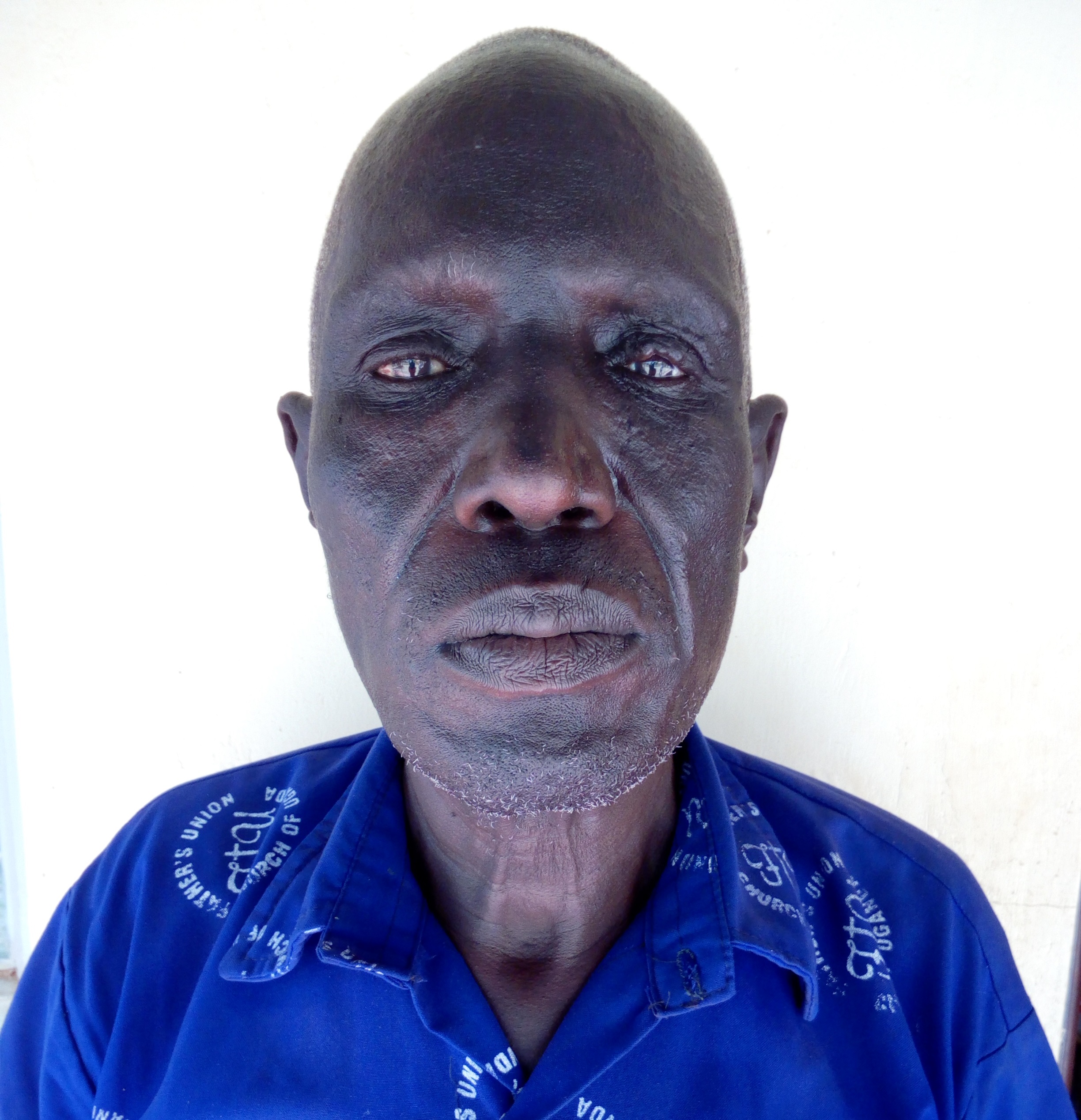Portrait of the author, John Muto-Ono p’Lajur
“Why are you fighting our government?”
“No! No! Madam! I am not fighting your government. My work here in northern Uganda, as a journalist, is simply to make the war going on known to the international community so that a lasting resolution is found quickly. You may wish to know that although your government imprisoned me for two years; I did not join any rebel movement. I am a law abiding citizen”
GULU-UGANDA: “Why are you fighting our government?”This was the first words that Uganda’s First Lady, Ms. Janet Museveni, asked me as soon as she entered the room where I was ushered into to wait for her.
Neither pleasantries, nor greetings cemented this encounter as someone you are meeting for the first time.
This happened at night at the Gulu Presidential State Lodge in the Forth Division Uganda People’s Defense Forces (UPDF) headquarters in Gulu in 2001 after General Yoweri Museveni finished his campaigned at Kaunda ground.
I had a quick mental calculation and realized that if I didn’t compose myself and answer as calmly as possible, then I would be in danger.
We were only three people in this room; The First Lady, her personal assistant and me.
Mr. Museveni was sitting in his sitting room facing the door where we were meeting.
“No! No! Madam! I am not fighting your government. My work here in northern Uganda, as a journalist, is simply to make the war going on known to the international community so that a lasting resolution is found quickly. You may wish to know that although your government imprisoned me for two years; I did not join any rebel movement. I am a law abiding citizen”, I told her. The rest is history.
My wife was very excited on seeing me back at about midnight. She was worried about my safety after she was informed by my colleagues who we were covering the campaign, that I was whisked away by the Presidential Guard Brigade (PGB) after the rally and taken to the barracks.
It was very risky to practice journalism in war torn northern Uganda as you are always a target of both rebels and government soldiers. Travelling was a nightmare as we had to move around war zones in convoys, escorted by the army in order to get the news. You cannot rule out being caught in crossfire.
This was not the first nor the last time I would interact with a member of the First Family. On November 7, 1997, Mr. Museveni’s younger brother, General Salim Saleh, of all journalists on the ground, invited me alone to the barracks when he was launching his maiden project for northern Uganda recovery-‘Salim Saleh Foundation for Humanities (SSFH)’. This encounter went on cordially.
Later, I led a team of Northern Uganda Media Club (NUMEC) journalists for a meeting with Mr. Museveni after the elections of 2001, who called us ‘liars’ as he was greeting each of us. Some of our colleagues took the opportunity to ask for scholarship to go for degree courses and were successful
My real journey into journalism actually began on February 8, 1993 with a letter signed by Mr. Charles Onyango-Obbo, then editor at The Monitor Publications Limited, the publisher of the Independent Daily Monitor newspaper.
I took this first opportunity seriously and worked so hard especially learning the A, B, C’s of journalism: the 5Ws+1H, as I was being tutored by Mr. Onyango-Obbo. I even forgot to follow up with my editor to be appointed formally after the trial period elapsed.
My formal appointment as the Bureau Chief in charge of northern region did not come by until April 1, 2001. I was being paid per story all those years and I was not enrolled for the National Social Security Fund (NSSF) contributions. I succeeded a man I recruited to join me at the Monitor, who, unfortunately passed on a few years into the job.
My primary objective of joining the Monitor, six months after it was established, was because the State owned New Vision newspaper was not covering the LRA-National Resistance Army (NRA), now Uganda People’s Defence Forces (UPDF) conflict, as accurately as should have been the case. It was a kind of propaganda publication which was fuelling the conflict instead of resolving it. Most of their stories were from soldiers.
I wanted the international community to know about the ongoing war with the sole aim of finding a quick resolution to it. There was insecurity everywhere and people were dying and suffering unnecessarily.
I was given one instruction by Mr. Onyango-Obbo; to include the voices of local leaders, victims, religious leaders, cultural leaders and survivors in my stories instead of that of government agents since their voices have platforms in government media outlets.
No communication infrastructures
The biggest change I noticed 25 years later, is the coming in of the computers, Internet and digital photo studios; which revolutionized the way we transmit news to our editors.
We began by hand written scripts, which we would either fax to our editors through the only place to get such service-the Post Office; or we would line up for the only one telephone line and dictate our stories to the receiver on the other side of the line.
There was only one photo studio which prints ‘black & white’ photos, which we had to carry physically to Kampala our photo editors.
There were only two banks; Uganda Commercial Bank (UCB) and the Cooperative Bank which had branches in Gulu. I would travel every month to Kampala to visit my editor or withdraw my salary from now defunct Crane Bank.
The new crop of young journalists graduating today from the numerous journalism schools do not work as hard as we used to do in getting news. Although bullets no longer fly around, they are lazy lots.












